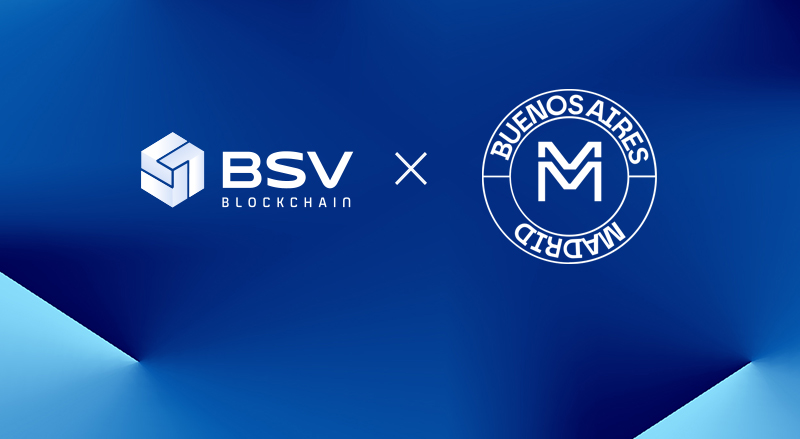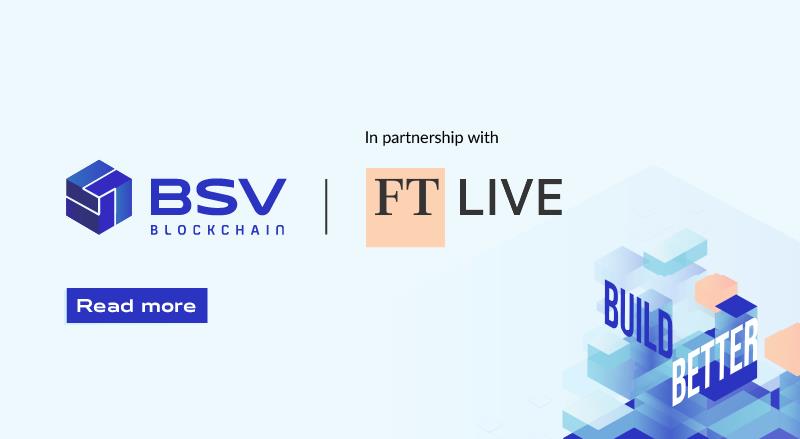Inventory management is an important business aspect that entails overseeing and controlling a company’s supply of products and materials. Regardless of your industry, effective handling of goods throughout their lifecycle is essential to maintain business efficiency. However, given the intricacies of supply chain management, you might struggle with timely restocking and other relevant tasks.
Fortunately, the emergence of blockchain technology makes workflows easier. In particular, blockchain addresses various inventory management challenges in the supply chain. Read on to learn more about how blockchain can optimise inventory management.

What is blockchain inventory management?
Blockchain inventory management is a system that utilises blockchain technology to track and oversee inventory. It records every product’s journey—from production to the hands of the end consumer. Likewise, this system leverages the underlying technology for inventory management transparency, security and immutability.
With blockchain inventory management, the degree of precision and security is superior to what traditional systems offer. Blockchain in inventory management not only streamlines your operations but also minimises the risk of errors and fraud to optimise your supply chain’s efficiency.
How blockchain inventory works
The process begins with the creation of a digital block per product. Each block contains essential data such as the item’s origin, production date and various touchpoints throughout the supply chain. These individual blocks are linked to form an immutable ledger that tracks and verifies the entire product journey from production to delivery.
Unlike traditional methods, this system has no central authority. You and relevant parties in the supply chain have access to the records and must have a consensus to verify every entry added to the block. This decentralised approach enhances transparency and trust among stakeholders.
Then, all the parties update the digital ledger in real time with details like shipping status, quality inspections and storage conditions. With these measures, you have accurate and timely information about the product’s location and condition. Additionally, you can identify and resolve an issue arising from a particular source.
How to implement blockchain inventory management
Knowledge regarding the proper steps to implement blockchain inventory management can help you utilise the technology better and improve your supply chain. Here are the steps to fully leverage this system in your operations.
1. Select a platform that addresses your needs
Your choice of platform should align with your business’s unique requirements. For a more straightforward implementation, you must consider its capabilities regarding scalability, data security and compatibility with your existing infrastructure. Also, select a blockchain that seamlessly integrates with your inventory management processes for a smooth transition to blockchain-based solutions.
2. Construct a network infrastructure
This step involves configuring the network’s transmitter nodes for inventory management. The configuration settings should include communication protocols and data-sharing agreements with relevant parties in the supply chain.
3. Adopt the process and train staff
At this stage, you must acquaint your team with the new system through training sessions focusing on using blockchain inventory management system (IMS) effectively. In a blockchain-based IMS, data management is vital for accurate and real-time information relevant to your inventory.
So, consider training your employees on proper data entry and validation as well as protocol sharing to achieve accuracy and avoid costly mistakes.
4. Constantly update and maintain the system
The successful implementation of blockchain inventory management requires regular updates and maintenance to keep the system running smoothly. Routine maintenance may include patching vulnerabilities, upgrading the network and ensuring data integrity. Continuous improvement ensures that the blockchain-based IMS remains efficient and secure.
Alternative: Use a blockchain service provider
UNISOT – a Web3 supply-chain traceability platform
Watch Stephan Nilsson (CEO and Co-Founder of UNISOT) detailing how his company offers a true web3 supply-chain traceability and sustainability platform.
SmartLedger for reliable data authentication on blockchain
While the BSV blockchain is often associated with electronic cash and dealing with large amounts of financial data, its capabilities and benefits extend far beyond this. SmartLedger is one such company that uses the technology uniquely through its new CannaTrack platform.
Gate2Chain
With their Trace application (developed in collaboration with IBM), Gate2Chain addresses the tracking process which can be difficult and costly. With Trace, consumers can tell exactly where their produce is from and whether it has been exposed to any contaminants as part of the transportation chain.
Elas blockchain-as-a-service solutions and bespoke blockchain solutions to businesses
Elas offers blockchain-as-a-service solutions and bespoke solutions to businesses so that they may leverage the true powers of the BSV blockchain.
A key benefit offered by Elas is that businesses and users don’t need to know anything about the underlying blockchain technology to benefit from the service, says Elas co-founder, Brendan Lee.
‘Most of our customers know very little about the underlying blockchain. They obviously know that the blockchain makes blocks, does transactions, that it’s immutable, etc. But in terms of the nitty-gritty, the in-depth protocol like how are we doing things, they don’t need to know any of that.’
What to look for in a blockchain for inventory management
Understanding the proper steps to implement blockchain for inventory management is just one part of optimising its potential. It’s best to consider other vital factors during your selection process. Below are some of these considerations.
1. Scalability
As your business grows, the right blockchain can accommodate a vast range of initiatives, including evolving inventory management needs. The system should handle constantly increasing transactions and data without compromising accuracy and security.
2. Cost-effectiveness
Every activity on the blockchain has a transaction (TX) cost. However, unreasonable fees can erode the benefits of blockchain technology. Additionally, the infrastructure cost for hardware and software requirements shouldn’t take up too many resources. An ideal blockchain should balance providing valuable features and maintaining affordability.
3. Interoperability
Blockchain’s real-time updates facilitate efficient inventory management, even in the face of challenges like raw material shortages. This is possible through blockchain’s seamless integration with essential systems like ERP software and payment gateways.
ERP software centralises sales-related data, procurement and inventory levels, enabling quick adjustments in response to inventory issues and supply chain delays.
Meanwhile, payment gateways enhance the security and transparency of financial transactions. The goal is to synchronise inventory and financial data for improved financial control and inventory management.
Ultimately, using blockchain lets data and processes flow smoothly between the inventory management system and other third-party applications.
4. Transparency
Transparency is a fundamental characteristic of an effective blockchain for inventory management. For this reason, every transaction and change in the inventory must be visible to all stakeholders.
Take public blockchains, for example. A public blockchain, such as from BSV Association (BSVA), is open to anyone and lets stakeholders validate transactions in the blockchain.
This form of real-time viewing of inventory data reduces the risks of discrepancies. Because of the transparency in records, blockchain not only enhances trust but also aids in tracking the movement of goods for reduced errors and fraud.
Since not all blockchains possess these characteristics, it’s best to look for one that matches your organisational requirements. Luckily, BSV Blockchain offers a solution for critical inventory management functions.
6 advantages of blockchain inventory management
Incorporating blockchain into inventory management processes offers numerous advantages to improve your supply chain and its various aspects.
1. Reduced costs in inventory tracking
Traditional inventory tracking methods often involve labour-intensive processes susceptible to human error. However, automating these tasks using blockchain technology can significantly reduce costs. Not only does it save you labour expenses, but it also minimises the risk of costly mistakes, such as miscalculations or discrepancies in stock levels.
This efficiency in tracking and managing inventory effectively contributes to cost savings across the entire supply chain.
2. Enhanced trust and collaboration
In a blockchain-based system, everyone has access to the same data. So, you can reduce misunderstandings and disputes, which can be costly in terms of time and resources.
Blockchain’s transparency and immutability create a secure environment you and your stakeholders can trust when sharing information and coordinating activities. As a result, you can improve collaboration among all parties involved.
3. Faster response times and better tracking
Through real-time updates, blockchain-based inventory management systems let you immediately identify and address critical issues like raw materials shortages.
Since the system instantly records each interaction, from raw material procurement to manufacturing and distribution, you can pinpoint the exact location and status of materials, identify potential bottlenecks or delays and quickly mobilise resources to mitigate the shortage.
Swiftly responding to these issues can enhance overall efficiency and customer satisfaction, which are among the benefits you can gain from an effective blockchain-based inventory management system
4. Significant improvements in accountability and transparency
As mentioned, every transaction has a corresponding record on the blockchain, making it easily traceable and attributable to the responsible party. In addition, blockchain allows stakeholders access to the same information, promoting clear communication and trustworthiness. This level of accountability and clarity reduces the likelihood of disputes and lets you immediately identify the root cause of the issue.
5. Robust inventory security
High-level security is essential today, where data breaches and cybersecurity threats are rampant. Fortunately, blockchain-based systems can protect your data.
The decentralised nature of blockchain requires a consensus from the transmitter nodes before confirming inventory transactions, which means it’s near impossible to tamper with records. Likewise, blockchain eliminates the risks of a single point of failure inherent in traditional centralised systems.
Blockchain-based systems also use encryption techniques to protect vital inventory data from unauthorised access and cyberattacks.
6. Reduced operational downtime
Unlike traditional systems relying on a central authority, blockchain operates on a network of nodes. This decentralised approach makes the system more resilient and reliable. Regardless of whether one part of the network experiences issues or downtime, the rest of the system remains operational with minimal disruptions in inventory management operations to achieve continuity in supply chain processes.
Revolutionising inventory management with blockchain
Effective inventory management is a common challenge for businesses across industries. However, the rise of blockchain technology paves the way for a streamlined process of overseeing inventory. By understanding how to incorporate this technology into your inventory management, you can optimise your supply chain journey for a better and smoother flow of products.
In turn, you can improve customer satisfaction as your products reach end-users promptly. That said, choosing the right platform for your business needs is essential—and BSV blockchain can help. BSV blockchain is a robust infrastructure for a data-based economy that can streamline your supply chain. Download this eBook to learn more about it.






